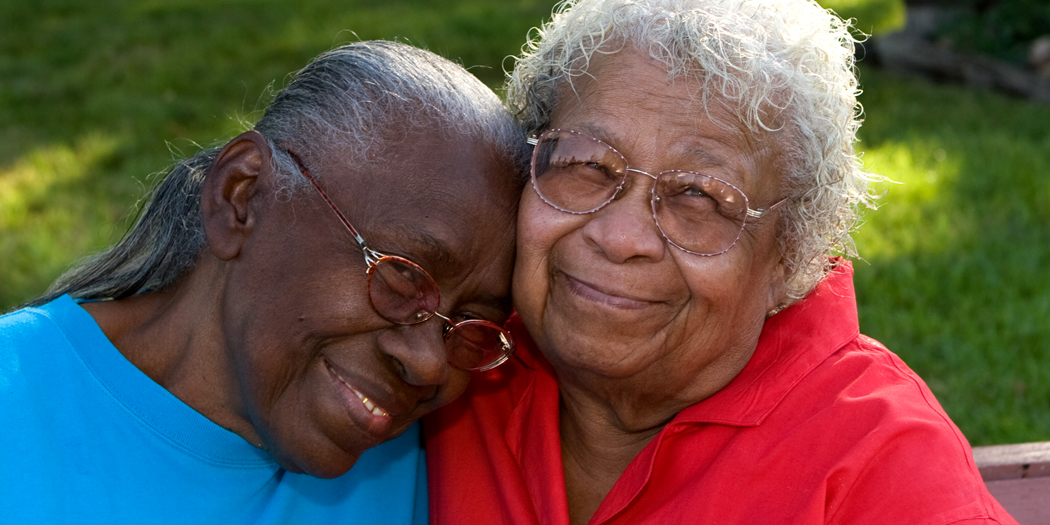
Posted: November 28, 2022
It’s best to be proactive rather than reactive when recognizing signs that your loved one may need assisted living. Assisted living offers access to 24-hour care for seniors who would benefit from some daily assistance but don’t require skilled nursing or specialized dementia care. It provides an apartment-style residency option for older adults who could benefit from help with completing their daily routines.
Often, adult children feel a sense of guilt around deciding whether a loved one may be ready for assisted living. Feeling guilty about moving a loved one to assisted living is not uncommon and can be a challenging emotional experience. It’s important to remember that making such a decision is often done with the best interests and well-being of your loved one in mind. Often, their loved one’s needs exceed what can be provided at home, and professional care becomes necessary to prioritize their safety, health, and quality of life.
How do you know if it’s time for assisted living? Here are some questions to ask assisted living communities. Also, ask yourself the following questions about your loved one. “Yes” responses to any of these questions might meant that it’s time for a change.

Many older adults want to age in place, but home is not always the best place for an aging loved one—especially if they are relying on a relative for caregiving. An assisted living community can provide socialization opportunities and immediate medical care when needed. And although it is admirable to care for an elderly loved one, many caregivers find that caring for an aging person makes it difficult to achieve balance in their own lives.
Taking care of your emotional well-being is crucial. Allow yourself to process your emotions, practice self-compassion, and seek self-care activities that help you cope with any guilt or stress you may be experiencing. Finding a compassionate community that can provide around-the-clock care through assisted living can help you refocus on a relationship with your loved one that does not depend on you being constantly attentive to their needs .
Cleaning your home, preparing meals, and taking a shower and getting dressed are essential activities of daily living (ADLs) that are second nature to most of us through our adult lives. But as we age, these tasks can become more challenging to perform. If you’ve noticed your older loved one is struggling with these essential life tasks, it may signal that it’s time for a new level of care.

Loneliness and social isolation can impact people of all ages, but they are especially prevalent for many older adults. Often their social circles have diminished naturally or they can no longer drive, making socializing more challenging. Research shows that chronic loneliness can have a negative impact on a person’s memory, well-being, mental health, and even life expectancy. Stepping in and offering your loved one a solution in the form of assisted living can make a difference in their physical and emotional health.
Remember that assisted living communities typically encourage family involvement. Make an effort to maintain a close relationship with your loved one by visiting regularly, participating in activities together, and staying updated on their care. This involvement can help alleviate guilt and ensure their well-being.
When an older parent or other family member is diagnosed with a chronic illness, you’ll likely experience a range of emotions from anger, guilt, sadness—and everything in between. When this happens, it’s essential to face the reality of the situation to ensure your loved one’s comfort and peace of mind for yourself and your family.

Older adults often take several medications, vitamins, and supplements to treat different symptoms and health conditions, which can increase the risk of making mistakes with medication. Often these simple mix-ups can become dangerous and even fatal. If someone struggles with taking their medication as prescribed, such as forgetting to take it or taking the same medication twice, it points to a potential cognition issue and should be addressed.
Tripping on a rug or slipping on a wet floor can happen to anyone, but in older adults, it can lead to a life-changing injury. When older adults fall, they could break a bone, which often triggers the start of more serious health problems that can lead to long-term disability—or even death.
Older adults often don’t have as big of an appetite as they used to, so their typical food consumption may be much smaller than what their body needs. Many medicines seniors must take can affect their appetites and senses of smell and taste. Oral health issues like poorly fitting dentures can make eating painful, and those who struggle with arthritis may get frustrated with cooking nutritious meals. An assisted living community can help ensure your loved one has access to nutritionally balanced meals. Be sure to visit the community at meal times to sample the food. It is important that the food is not only nutritionally sound for older adults but is appealing visually and of course, delicious.
Wandering and disorientation are common in those living with Alzheimer’s disease and other forms of dementia. The wandering itself is dangerous, and it is also a frightening experience for the disoriented person and their loved ones. An assisted living community can provide specialized Memory Care services designed to offer support, dignity, and security for its residents. This technology can also alert team members if a resident falls, giving family additional peace of mind.
Cognitive decline is a critical factor that makes the elderly more susceptible to financial exploitation. Sometimes diseases of the brain cause cognitive decline. Yet the decline can occur even in the absence of disease.

If you’ve noticed signs that your loved one needs help completing the everyday tasks of living, you may want to initiate a conversation about assisted living. Remember that you are making this decision out of love and concern for your loved one’s best interests. Focus on the positive aspects of the decision and the enhanced care and support they will receive in assisted living. Knowing the questions to ask an assisted living community can be a great next step that provides help in areas where your loved one needs it most. If you think this is the right step for your loved one, contact us for more information about assisted living.